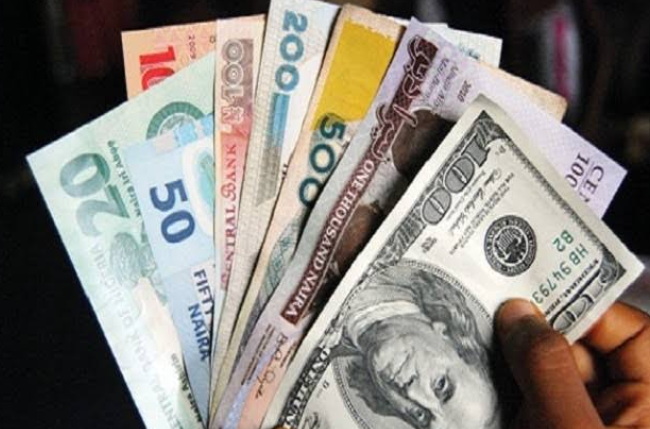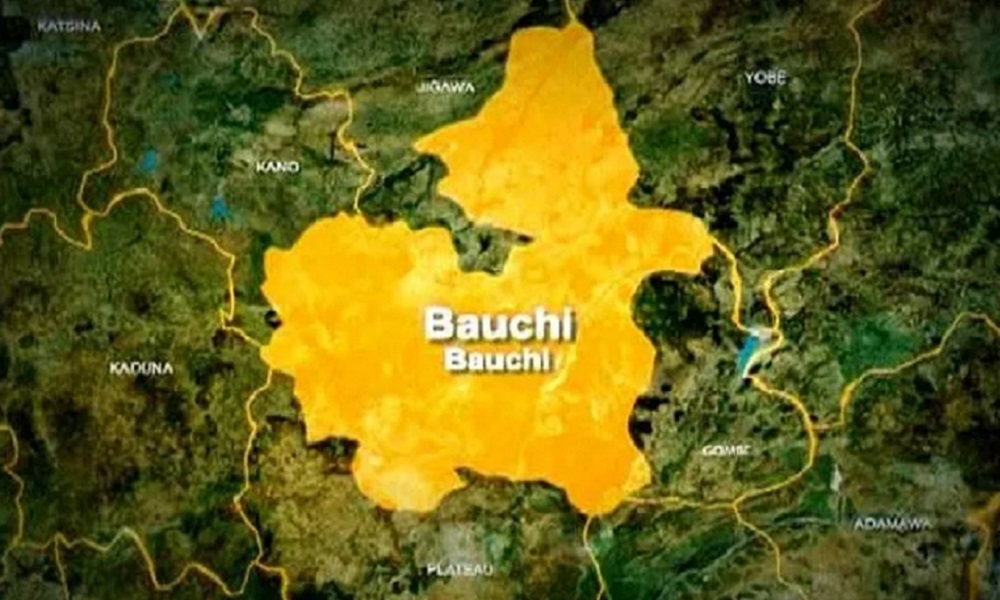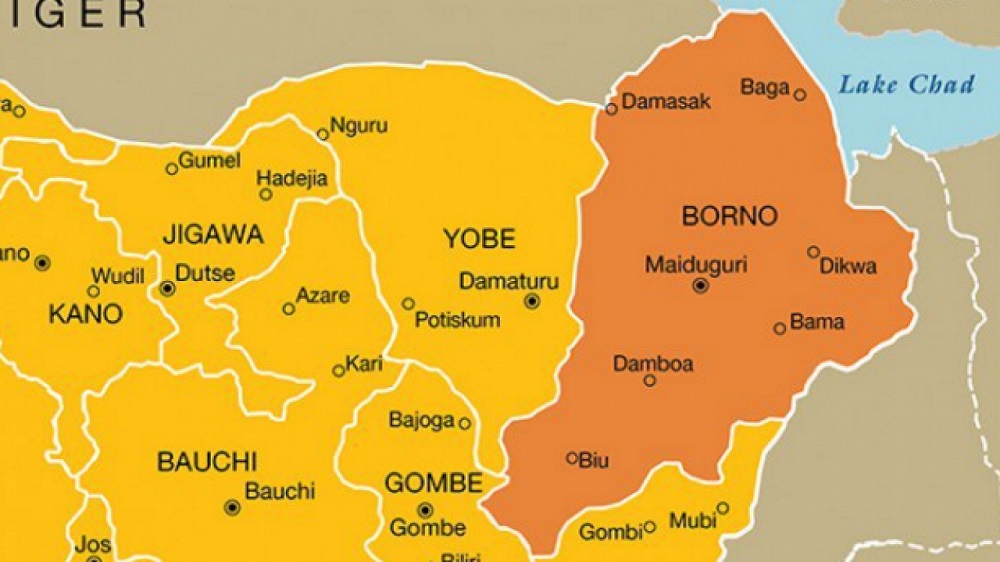News
SEE Dollar to Naira Today Black Market June 17, 2024: USD to NGN CBN Rate

By Kayode Sanni-Arewa
Navigating the Currency Exchange Landscape in Nigeria Navigating the currency exchange landscape in Nigeria requires up-to-date knowledge of the dollar to naira rates. As of June 17, 2024, this comprehensive guide provides the latest exchange rates from both the black market and official windows, including insights from platforms like Geegpay and Grey. Additionally, we’ll explore the factors influencing these rates and answer frequently asked questions.
Understanding the intricacies of the dollar to naira exchange rate is crucial for anyone involved in financial transactions in Nigeria. Whether you are a business owner, traveler, or investor, staying informed about the current rates can help you make better financial decisions. This guide aims to provide you with the latest information on the exchange rates, both in the black market and through official channels, and offer insights into the factors that influence these rates.
Dollar to Naira Black Market Exchange Rate The black market, also known as the parallel market, offers more attractive rates compared to official channels. However, these transactions come with inherent risks, such as the potential for fraud and legal complications. Currently, the black market rates for dollar to naira are as follows:
Buying Rate: ₦1,483
Selling Rate: ₦1,484 – ₦1,489
These rates fluctuate frequently, influenced by demand and supply dynamics, geopolitical factors, and economic conditions.
Geegpay and Grey Dollar to Naira Exchange Rates Geegpay provides competitive exchange rates for various currencies, facilitating digital transactions for ease and convenience. As of today:
EUR (€): Buying at ₦1,690.03,
Selling at ₦1,695.55
GBP (£): Buying at ₦1,950,
Selling at ₦1,965 USD ($):
Buying at ₦1,500,
Selling at ₦1,550
Both platforms have become popular for their ease of use, transparency, and competitive rates, making them viable alternatives to traditional exchange methods.
Latest Dollar to Naira CB
The Central Bank of Nigeria (CBN) sets the official exchange rates, which are typically lower than black market rates but come with the stability of regulation:
Buying Rate: ₦1,467
Selling Rate: ₦1,470
CBN rates reflect government policies aimed at stabilizing the naira and managing the country’s foreign exchange reserves.
Comparing Official and Black Market Rates
There is a significant disparity between official and black market rates. While the black market offers higher rates, the associated risks are substantial. The CBN advises using official channels to avoid fraud and legal issues. Official rates, regulated by the government, are more stable and reliable, providing a safer option for transactions.
Pounds and Euro to Naira Exchange Rates For those dealing in other currencies, here are the latest rates:
Pounds to Naira (CBN Rates)
Buying Rate: ₦1,890
Selling Rate: ₦1,905
Euro to Naira (Black Market Rates)
Buying Rate: ₦1,615
Selling Rate: ₦1,625
These rates are also subject to fluctuations based on market conditions and economic policies.
Understanding Exchange Rate Fluctuations
Exchange rates between the dollar and naira fluctuate due to several factors. Key influences include:
*Economic Policies:* Government decisions on interest rates, inflation control, and monetary policies play a significant role.
*Supply and Demand* : The availability of foreign currency versus local currency demand.
*Political Stability* : Geopolitical events can create uncertainty, affecting investor confidence.
*Global Economic
Conditions: Changes
in global markets, such as oil prices and economic growth rates, impact the naira.
How to Safely Navigate the Currency Exchange Market
Given the risks associated with the black market, it is advisable to use official channels or reputable online platforms like Geegpay and Grey for currency exchanges. These platforms offer transparency, security, and competitive rates, reducing the likelihood of fraud and legal issues.
Practical Tips for Currency Exchange
*Research Rates Regularly* : Stay updated on the latest rates to make informed decisions.
*Use Reliable Platforms* : Opt for trusted online services or official banking channels.
*Monitor Economic News* : Keep an eye on news that could affect currency values.
*Plan Ahead* : If possible, plan currency exchanges in advance to take advantage of favorable rates.
FAQs
What is the current dollar to naira exchange rate in the black market?
The current black market rate for the dollar to naira is around ₦1,485 for buying and between ₦1,485 and ₦1,487 for selling.
How does the CBN exchange rate compare to the black market rate?
The CBN exchange rate is slightly lower, with the buying rate at ₦1,467 and the selling rate at ₦1,470. The black market rates are typically higher due to demand and supply factors.
*Are online platforms like Geegpay and Grey reliable for currency exchange?*
Yes, platforms like Geegpay and Grey are reliable and offer competitive rates. They are convenient for individuals and businesses engaged in international transactions.
*Why does the dollar to naira exchange rate fluctuate?*
The exchange rate fluctuates due to various factors, including economic policies, inflation, global economic conditions, and market speculation.
*Is it safe to use the black market for currency exchange?*
While the black market may offer better rates, it carries risks such as fraud and legal issues. It’s advisable to use official channels for safer transactions.
*How can businesses manage exchange rate risks?*
Businesses can manage exchange rate risks through hedging strategies, diversifying income sources, and regularly monitoring market trends.
*Conclusion on Black Market Dollar to Naira Exchange Rate*
Staying informed about the dollar to naira exchange rate is essential for navigating Nigeria’s economic landscape. While the black market offers attractive rates, the risks involved often outweigh the benefits. Therefore, using official channels and reliable online platforms is recommended for safer and more transparent transactions.
News
IGP Launches Safe School Squad In Bauchi

The Inspector General of Police, Kayode Egbetokun, on Thursday, launched a new police-led school protection squad under the Safe School Initiative.
Egbetokun said the unit is part of the national strategy to fortify educational institutions against rising security threats.
The Commissioner of Police in charge of the Schools Protection Squad, Abayomi Shogunle, performed the unveiling on behalf of the IGP and stressed the urgent need for coordinated security measures to safeguard students, staff, and school infrastructure across the country.
Shogunle, who spoke at a stakeholders’ forum on school security, said Nigeria has increasingly battled threats such as kidnapping, homicide, and the destruction of school property.
He explained that these challenges have forced many schools to shut down, thereby worsening the problem of out-of-school children and affecting surrounding communities.
He cited the 2021 National Policy on Safety, Security, and Violence-Free Schools, revealing that “more than 600 teachers were killed in attacks, while more than 19,000 were displaced between 2012 and 2016”.
Shogunle said, “Today’s event, Strengthening Security Resilience and Integration of Host Communities, aligns with the national plan on financing safe schools in Nigeria.
“The plan has a national investment response aimed at protecting schools, learners, teachers and non-teaching staff from attacks in all parts of Nigeria and was designed to achieve measurable outcomes such as reducing the number of out-of-school children and improving Nigeria’s rating in the human capital index in the long run.”
Bauchi State Police Commissioner Sani-Omolori Aliyu also addressed participants at the forum. He confirmed that Nigeria has recorded a disturbing increase in kidnappings, banditry, and attacks targeting students and school staff.
He said these incidents have disrupted learning and spread fear among parents, pupils, and the broader society.
Aliyu revealed, “It was in response to the development that the Nigerian Police collaborated with the federal and state governments and various stakeholders to develop the safe school programme aimed at creating a safe school environment that allows children to pursue their education, free from the spectre of violence or fear.”
He continued, “The Safe School Program is a comprehensive initiative that involves multiple stakeholders and agencies working in unison to prevent attacks, respond effectively in emergencies, and support communities and schools affected by violence.
“The Safe School Squad will be guided by a comprehensive policy framework that delineates its mandate, functions, and operational protocols.”
Aliyu noted that the unit would collaborate with schools, local communities, and relevant bodies to detect and respond to threats swiftly.
He added that the formation of the squad signifies a major leap in the police force’s dedication to school safety.
“This squad will be rigorously trained and dedicated to tirelessly preventing attacks and effectively addressing emergencies as they arise,” he said.
He emphasised that “The Safe School Program transcends a mere police initiative; it is a collaborative effort necessitating the engagement of all stakeholders. We earnestly encourage parents, educators, students, and the wider community to support this initiative and join hands with us in ensuring that our schools remain sanctuaries for learning.”
News
Viral Video: Aiyedatiwa reenters classroom, educate pupils in Ondo school

A recent viral video has captured Ondo State Governor, Lucky Aiyedatiwa, returning to his roots as a teacher, engaging with students at an unnamed school.
The video, which was shared on the Governor’s official Facebook page, shows him writing the word “Drugs” on the board and interacting with the pupils during a lesson.
The Governor encouraged the students to name three forms of drugs, prompting active participation from the class.
The video, which quickly gained traction online, was accompanied by the caption, “Once a teacher, always a teacher.” This gesture comes shortly after the Governor’s approval in March 2025 for the recruitment of 1,100 primary school teachers across all 18 local government areas of Ondo State, part of a broader initiative to improve the state’s education system.
Governor Aiyedatiwa has been vocal about his commitment to educational reform. In his message accompanying the video, he highlighted recent efforts to enhance education in the state, including the distribution of textbooks, Android tablets, and sports equipment to public schools. “This initiative, funded through the 2023/2024 UBEC/SUBEB intervention, underscores our unwavering commitment to quality education for every child, regardless of background,” the Governor said.
Further updates on the state’s educational progress included the construction and rehabilitation of classrooms in over 100 schools, the distribution of more than 75,000 textbooks and digital learning resources, and the recruitment and training of over 2,100 new teachers. Additionally, Aiyedatiwa emphasized his administration’s support for extracurricular activities, such as sports, as an essential part of students’ development.
Governor Aiyedatiwa’s return to the classroom serves as a reminder of his dedication to education and the future of Ondo State’s children. As part of his continued efforts to advance education, he said, “With every book, tablet, and sports kit, we are investing in the leaders of tomorrow.”
Watch video below: https://web.facebook.com/reel/563785076763901
News
Four children injured, one loses hand in Borno IED explosion

An Improvised Explosive Device (IED) detonated in Mafa Local Government Area of Borno State, injuring five children, one of whom suffered the traumatic loss of a hand.
The incident occurred on Thursday, May 8, 2025, around 2:25pm near a culvert along the access road leading to a construction site at the New Mafa Central Mosque.
According to preliminary findings, the children accidentally triggered the hidden IED, which had been concealed in block holes at the site.
The victims, identified as Abdullahi Umar, Musa Mele, Fatima Abatcha, Abba Kawu Muhammed, and Khalid Alhaji Bukar, all residents of Mafa town, sustained varying degrees of injuries from the blast.
A coordinated emergency response was launched by the Explosive Ordnance Disposal-Chemical, Biological, Radiological, and Nuclear (EOD-CBRN) Unit, officers from the Mafa Police Division, and members of the Civilian Joint Task Force (CJTF).
The area was secured, and a thorough search for secondary devices was conducted. Fragments of the IED, crafted using tin containers, were recovered and safely neutralized.
Four of the injured children were transferred to the University of Maiduguri Teaching Hospital (UMTH) for advanced medical care, while the fifth, who sustained minor injuries, was treated and discharged from Mafa General Hospital.
In the aftermath, the EOD-CBRN team launched an Explosive Ordnance Risk Education (EORE) campaign to sensitize children and residents in Mafa on the dangers of unexploded devices, an ongoing threat in communities still recovering from years of insurgency.
-

 News18 hours ago
News18 hours agoJust in: Popular Yoruba traditional ruler joins his ancestors
-

 News18 hours ago
News18 hours agoJust in: Nigeria is still owing us N190bn- IMF insists
-

 News22 hours ago
News22 hours agoExperts say helicopter firm may face criminal charges over Herbert Wigwe’s death
-

 Politics22 hours ago
Politics22 hours agoAwolowo’s grand-daughter resigns as LP executive committee member
-

 News18 hours ago
News18 hours agoJust In: JAMB releases 2025 UTME results, withholds 39,834 over misconduct
-

 News23 hours ago
News23 hours agoS’Court judgment forces US military to remove 1,000 transgender
-

 News21 hours ago
News21 hours agoBenue on fire as gunmen kill APC leader, District Head on their farms
-

 News22 hours ago
News22 hours agoCount me out of ENDSARS killings in Lagos’, – Nnamdi Kanu






